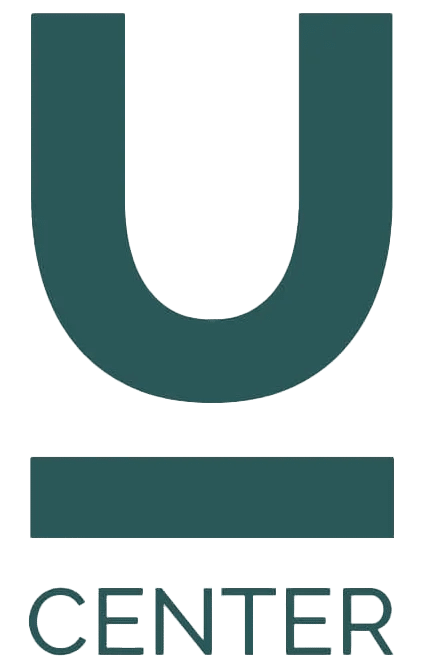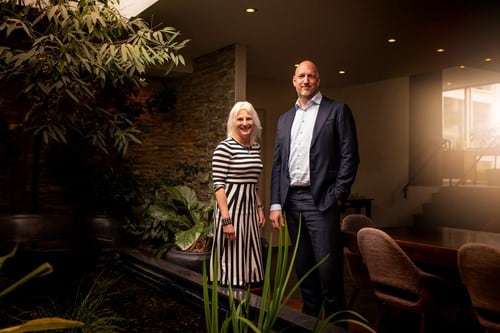U-center welcomes a new executive team that combines substance and experience. With Bouke Schuurmans as Managing Director and Rosy Ghijsens as Director of Care, the organization will have two permanent faces at the helm. Their arrival heralds a new chapter for U-center, in which continuity and professional strengthening are central. Both have made long-term commitments to the organization and share a clear mission: to sustainably strengthen the organization and take treatment quality to an even higher level.
Schuurmans has been in office since March 1 and emphasizes how familiar the concept of U-center feels to him. "The small scale, the holistic treatment vision and the combination of care and entrepreneurship make this a logical step for me. Here we can still develop a lot - both in care content and in broadening target groups, for example towards employer pathways."
He sees opportunities to expand the care offer: "Our approach is intensive and short-term. That fits well with people who drop out in demanding professions - think police, fire department or defense - but also with larger organizations where psychological strain often remains underexposed."
Dual governance: balancing content and operations
Rosy Ghijsens, psychiatrist and psychotherapist, will start May 1 and assume care responsibilities. "I come from a context where change-oriented, intensive therapy was central. That depth, that connection with teams and clients - that's what turns me on. And that's exactly what U-center offers."
The duo labels dual governance not as division, but enhancement. "We pull together in the course setting, from two perspectives that touch and enrich each other," says Ghijsens. "That means not only more managerial continuity, but also more focus and depth in both operations and treatment content."
Stability and professional anchoring
In recent years, U-center experienced a high rate of personnel changes. That instability left traces in the organization. Schuurmans is realistic about this: "Unrest at the top affects the workplace. You can only win back trust with clarity, presence and a shared perspective."
According to Ghijsens, now is the time for direction: "People want to know where they stand. We already notice how much it is appreciated that there will again be a fixed point of contact for the content of care. As Director of Care I am not only ultimately responsible, I am also actively involved in teams and treatment offerings. That makes the conversation about quality more direct and constructive."
Professionalizing while maintaining engagement
The new administrators see it as their job to make room for professional ownership. "We don't want a top-down model, but rather a professional structure where practitioners know what their role is - AND how it contributes to the bigger picture," Schuurmans said.
That also demands something in return, Ghijsens says: "We expect people to want to develop, to want to build. That requires a different way of looking at your work - with attention to your profession and to the organization as a whole."
An invitation to the profession
U-center works with people with complex, often multiple problems. The treatment period is short but intensive: six weeks of inpatient treatment in an environment deliberately designed as a healing environment, with a strong focus on hospitality and interdisciplinary collaboration. "The challenge is in the depth you achieve in a short period of time," Ghijsens says. "For that, you need inspired professionals who want to work for real change."
Both directors are clear about their commitment to make a long-term commitment to U-center. "We are looking for colleagues who want the same: people who recognize themselves in the biopsychosocial model, and in our ambition to continue to provide care at the highest level," Schuurmans said.


